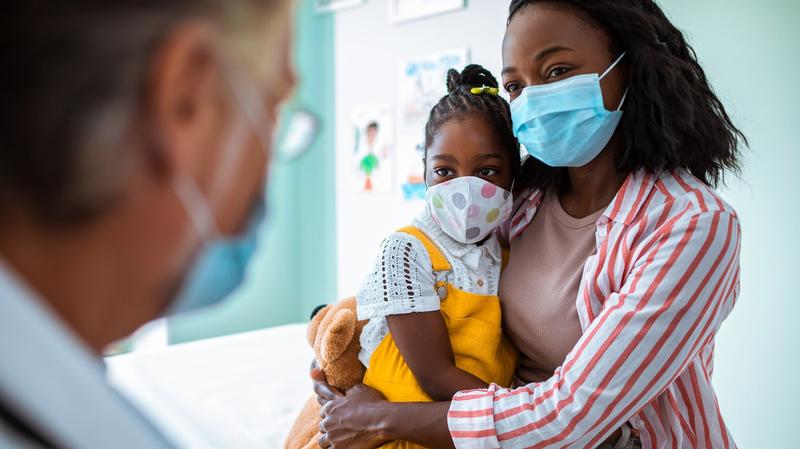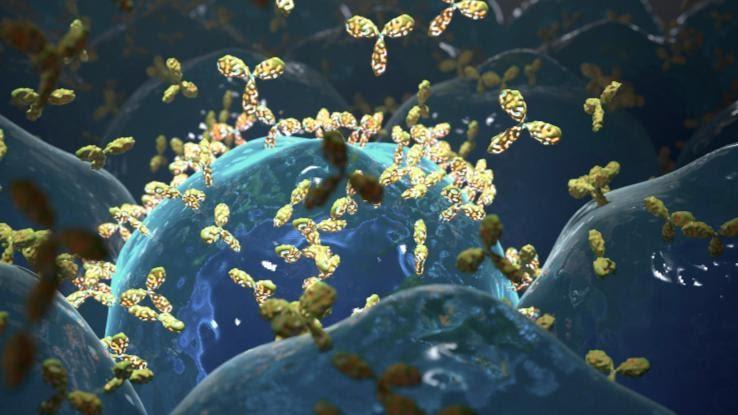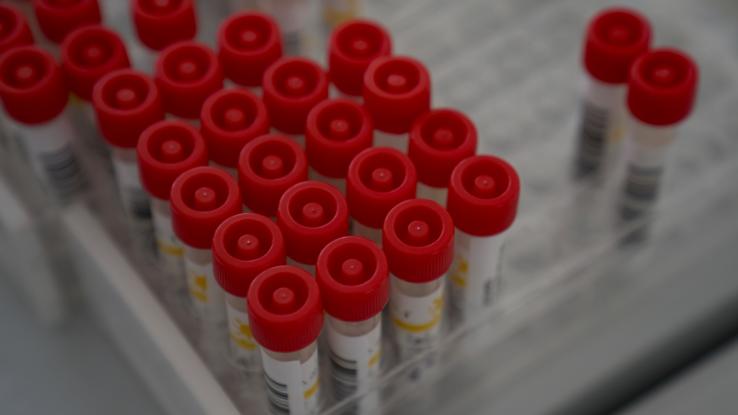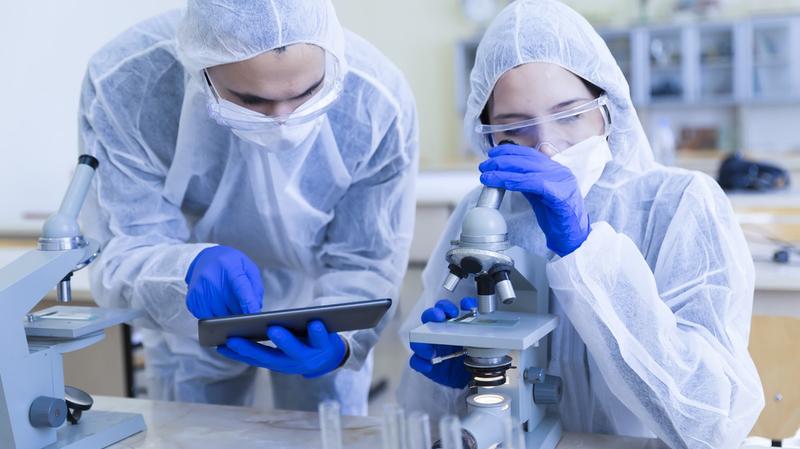When You Can Be Tried Again for the Same Crime Twice

The COVID-19 pandemic sparked ongoing fearfulness and dubiety nearly the dangers of the novel coronavirus, particularly every bit example counts began to rise and scientists adult a clearer motion-picture show of the full scope of the disease'due south range of wellness effects. Although preventative measures similar the lockdowns and quarantines nosotros saw throughout much of 2020 probable curbed COVID-xix'south spread to a big caste, many people — dealing perhaps with pandemic fatigue — eventually relaxed their vigilance.
Activity levels once again began to ascension around the world, particularly during 2020's winter vacation season, which led to renewed restrictions and shutdowns. Due to spikes in the number of positive COVID-19 cases, some countries — England, France, and Frg, for example — and some American states renewed restrictions and shutdowns. Based on the data provided by the Globe Wellness Organization, the worldwide death toll rose into the millions, and the number of confirmed infections in the U.S. and around the world continued to increase.
Of course, the fact that millions of people have recovered from the virus gives united states of america hope, equally does the fact that over ane.6 billion people around the globe are fully vaccinated. All the same, the possibility of reinfection is a major business regarding COVID – largely because there'due south so much that nosotros don't know, including wellness professionals. Here'southward a look at the latest information on the possibility of getting COVID-xix twice.
Antibodies Build Immunity to Viruses — Sometimes
When a healthy allowed organisation is exposed to a virus, it fights the infection past producing proteins called antibodies that remain in the body later on recovery. Unfortunately, some viruses mutate, only the antibodies don't modify with them. As a result, antibodies in the torso could cease up providing limited or no immunity to the next class of the virus. This is one of the reasons people are susceptible to new flu outbreaks each year.

Luckily, there may exist some skilful news related to humans' ability to develop antibodies to COVID-19. The novel coronavirus that causes COVID-19 has a slower mutation rate than influenza. Furthermore, the antibodies generated by a COVID-19 infection are projected to last for many years, mayhap even for life. The same principle applies to the Janssen COVID-nineteen vaccine.
Studies Are Answering More Questions — Gradually
The strength and duration of a person's immunity to any virus may depend on a number of things, including overall wellness and genetic factors. That makes information technology hard to effigy out the "right" answer to the question of how long immunity could potentially concluding.

The state of affairs is further complicated by conflicting research results and scientific reports coming in from effectually the world. In May 2020, a very small 10-person study conducted past Dutch researchers found that any natural immunity developed by someone exposed to the virus was "alarmingly brusk" — perhaps just six months to one year. This study was followed by a 2d British study that was released earlier it underwent the peer review process. The second study suggested that "virus-fighting antibodies drop off steeply 2 to three months after infection." The news was manifestly received with considerable dismay.
Less than a calendar week subsequently, a tertiary study was released — also before undergoing peer review — that showed unlike results. That study reviewed the cases of 20,000 patients in New York who had COVID-nineteen symptoms. When 120 of those patients were tested three months subsequently, researchers plant that they had stable and even increasing levels of antibodies in their systems.
The main takeaway from these various studies is that connected, thoroughly vetted enquiry is critical on 2 fronts. We must determine the strength and persistence of natural immunity while encouraging people to become fully vaccinated to prevent and reduce the spread of COVID-19.
Reports Circulate of Repeat Cases of COVID-19
A few months into the pandemic, media reports began to circulate about people who had been diagnosed twice — well after they had supposedly recovered. Those reports raised some serious questions almost whether we tin always wait to be completely safe from COVID-xix. In Apr 2020, the Korean Centers for Disease Command and Prevention (KCDC) officially identified 163 patients who were reinfected with COVID-nineteen. These findings triggered a broader serial of investigations to make up one's mind some existent answers.

In August 2021, the CDC announced that unvaccinated adults are twice as likely to become reinfected with COVID-19. Conversely, fully vaccinated adults are much less likely to experience reinfection. This data was based on a written report conducted in Kentucky. Adults with laboratory-confirmed SARS-CoV-two cases in 2020 were not reinfected by June 30th, 2021.
Personal Stories Raise More Questions
Despite the official scientific reports, the media continues to report anecdotal cases of people becoming reinfected. I of the nigh loftier-profile examples is the story of Sophie Cunningham, a basketball player with the Phoenix Mercury in the Women's National Basketball Association. Cunningham reported that she had the virus while playing basketball game in Australia in March 2020, although she wasn't formally tested. Upon arriving back in the United States, she went through a two-calendar week quarantine, only to examination positive for COVID-19 on June xix. Cunningham believes it was a second infection.

Researchers are cautious most responding to individual reports of reinfection that aren't accompanied by detailed testing and investigations. Angela Rasmussen, a Columbia University virologist told The Washington Post: "Yous tin't extrapolate those anecdotal, beginning-person observations to the unabridged population and make sweeping conclusions about how the virus works." In the absence of whatever "skillful scientific study" confirming reinfection, researchers are reluctant to have the widespread risk of additional positive infections, but they are open-minded enough about the unknown to avoid completely ruling out the possibility.
If reinfection rates are relatively low, then what is happening in cases similar Cunningham's? Dr. Lee Riley, Chair of the Partition of Infectious disease and Vaccinology at UC Berkeley School of Public Health, suggests that the problem may have to do with testing techniques. Tests don't actually discover the virus; they detect the presence of nucleic acids that comprise parts of the virus' genetic data. That means they could simply be detecting persisting amounts of those nucleic acids in the trunk of someone who tests positive a 2d time, "even when the virus itself is no longer alive and able to infect others." If that's the case, those credible 2nd positive results should more accurately exist called false positives.
Despite the exhaustive and ongoing efforts of researchers around the world, then much remains unknown nigh the novel coronavirus, humans' natural immunity to it, and the risk of reinfection. New research results are regularly released every week, so nosotros can go along to wait more than insight equally we movement forward. For now, even with all the unknowns, there is a broad consensus that prevention and protection are the best defense. We must all continue to socially isolate, become vaccinated when we're able to practice and then, and effectively apply personal protective equipment and best hygiene practices to achieve the most beneficial results.
Source: https://www.ask.com/culture/can-you-get-covid-19-twice?utm_content=params%3Ao%3D740004%26ad%3DdirN%26qo%3DserpIndex
0 Response to "When You Can Be Tried Again for the Same Crime Twice"
Post a Comment